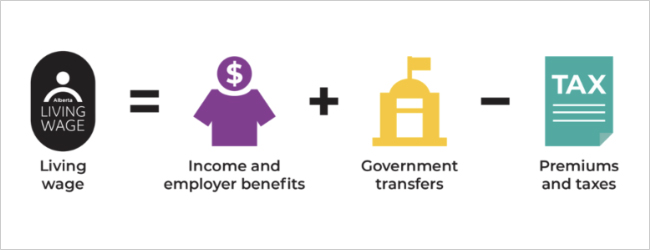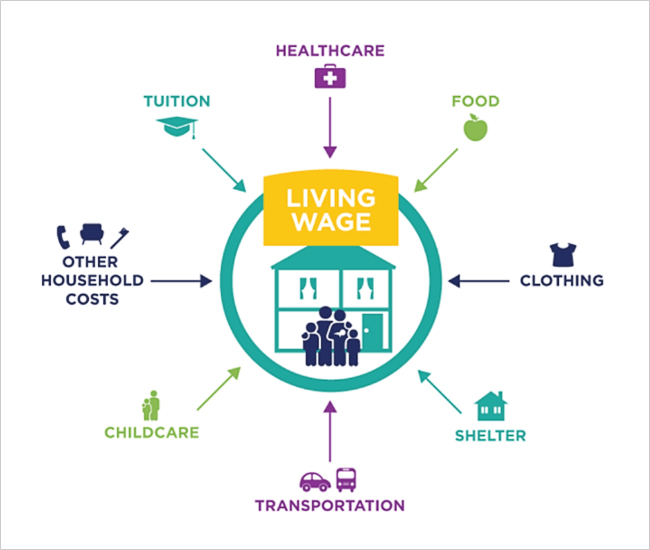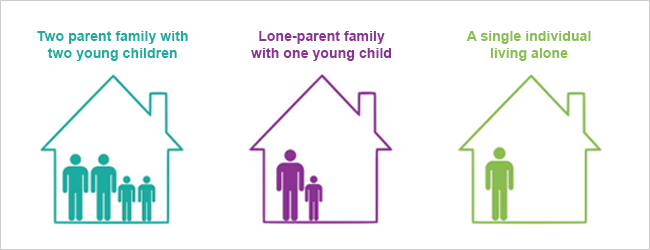
Living Wage
St. Albert's Living Wage
The City of St. Albert is a member of the Alberta Living Wage Network. Every year the network works with participating Alberta towns and cities, including St. Albert, to calculate and release a living wage calculation.

Living wage equals income and employer benefits plus government transfers, minus premiums and taxes.
St. Albert’s living wage decreased from $23.80 per hour in 2023 to $21.75 per hour in 2024. This was due to lower electricity and childcare costs as well as decreased consumer spending on clothing and footwear.
What is Living Wage?
The living wage is an indicator for affordability and livability based on the best data available for each community. The living wage reflects what people need to earn to cover the actual costs of living in their community. A standardized process is used to calculate based on factors such as transportation, food, shelter, and childcare costs.

Healthcare, food, clothing, shelter, transportation, childcare, tuition and other household costs all factor into living wage calculations.
A living wage is the hourly wage — based on a 35-hour work week — a worker needs to earn to cover their basic expenses and participate in the community. It takes the following three household types into account:

A two-parent family with two children, a lone-parent family with one young child, a single individual living alone.
How Does a Living Wage Benefit St. Albert?
- A living wage fosters a strong local economy. Studies show when we increase wages for lower income earners, they use most of their new purchasing power at local businesses.
- Being a living wage employer is a sustainable business model for entrepreneurs. It increases staff retention, productivity and product/service quality leading to cost savings over time. Businesses can stand out in bid processes, and they can attract new consumers. Alberta Living Wage Network has 150 Alberta businesses certified at this time. 1,000 employers across Canada voluntarily pay the living wage.
- A living wage helps to create a sustainable and healthy community. When people earn a living wage, they and their families meet their basic needs and can contribute to the community.
Living wage is just one strategy that may help reduce and prevent poverty. For more information about the network and how to become a certified living wage employer visit Alberta Living Wage Network
Upcoming Learning Opportunities
Living Wage: Evidence (for & against), Impact, and Why It Matters
Join us for a thoughtful discussion on the intersection of policy, economics, and social welfare as we explore why living wages matter for both individuals and the communities they live in.
In this webinar, ALWN’s Coordinator & Economist, Ryan Lacanilao, will delve into the key findings of the newest report and explore the evidence supporting and opposing a living wage. Attendees will gain insight into the direct and indirect effects of living wages on local communities, the workforce, and public service programs.
Related Pages
Last edited: February 10, 2025


